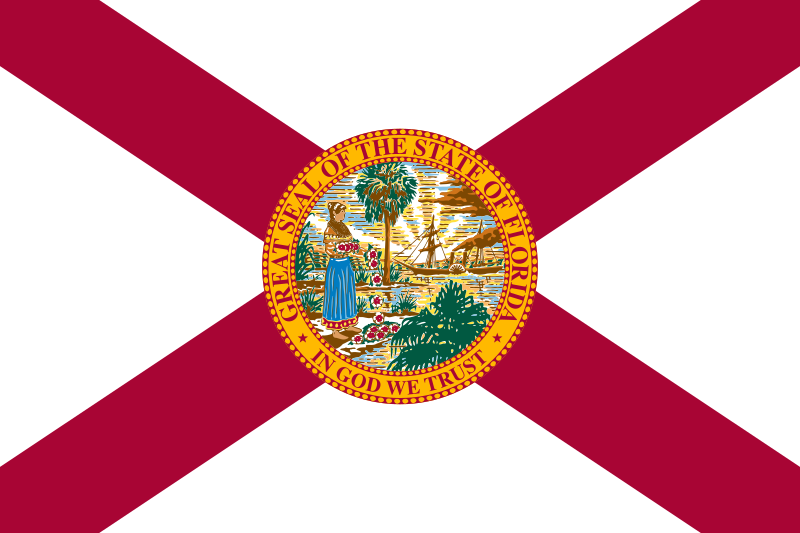The Florida ballot will feature six ballot measures in November. Four of them were put on the ballot through signature petition drives, and two were referred to the ballot by the state legislature.
The citizen initiatives cover topics including elections, voting, and minimum wage.
Amendment 1, sponsored by Florida Citizen Voters, would amend Florida Constitution to state that “only a citizen” of the U.S. who is 18 years old or older can vote in Florida. The Florida Constitution currently says “Every citizen of the United States who is at least eighteen years of age” can vote. Similar measures are on the 2020 ballot in Alabama and Colorado. All three measures are supported by Citizen Voters, Inc. North Dakota voters approved a similar measure in 2018.
Amendment 2 would increase the state’s minimum wage incrementally until reaching $15 per hour in September 2026. The measure is supported by Florida for a Fair Wage and is opposed by Save Our Jobs, Inc., also known as Amendment 2 Hurts You.
Amendment 3 would establish a top-two open primary system for state legislator, governor, and cabinet (attorney general, chief financial officer, and commissioner of agriculture) elections in Florida. All Voters Vote, Inc. is leading the campaign in support of Amendment 3. Opponents include the Democratic and Republican parties in Florida as well as groups such as the Florida AFL-CIO and the Florida NAACP.
Amendment 4 would require constitutional amendments to be approved by 60% of voters at two successive general elections to become effective. Currently in Florida, if 60% of voters approve an amendment at one general election, it becomes part of the constitution. Keep Our Constitution Clean sponsored the initiative. Opponents include the League of Women Voters of Florida.
The state legislature referred Amendments 5 and 6 to the November 3 ballot. Both measures concern property taxes.
Amendment 5, sponsored by Rep. Sam Killebrew (R), would extend the period during which a person may transfer “Save Our Homes” benefits to a new homestead property from two years to three years. Currently, if a person moves to a new home, they have two years to transfer their “Save Our Homes” benefit so that the new home is assessed at less than the actual market value. The amendment would increase that time period from two to three years. The Florida Revenue Estimating Conference (REC) determined that approval of the amendment would reduce local property taxes by $1.8 million beginning in the fiscal year 2021-22 and would eventually grow to a $10.2 million reduction annually.
Amendment 6, sponsored by Rep. Rick Roth (R), would allow a homestead property tax discount to be transferred to the surviving spouse of a deceased veteran. The discount would be in effect until the spouse remarries, sells, or otherwise disposes of the property. If the spouse sells the property and does not remarry, the spouse’s new primary residence may receive a homestead tax discount not exceeding the dollar amount from the most recent ad valorem tax roll. The amendment would take effect on January 1, 2021. Currently, the homestead property tax discount for veterans expires upon their death and is not extended to their spouses.
A total of 91 measures appeared on the Florida ballot between 1996 and 2018. Of the 91 measures, 75.82% of which were approved, and 24.18% were defeated. From 1996 to 2018, an average of between seven and eight measures appeared on the ballot during even-numbered years in Florida.


